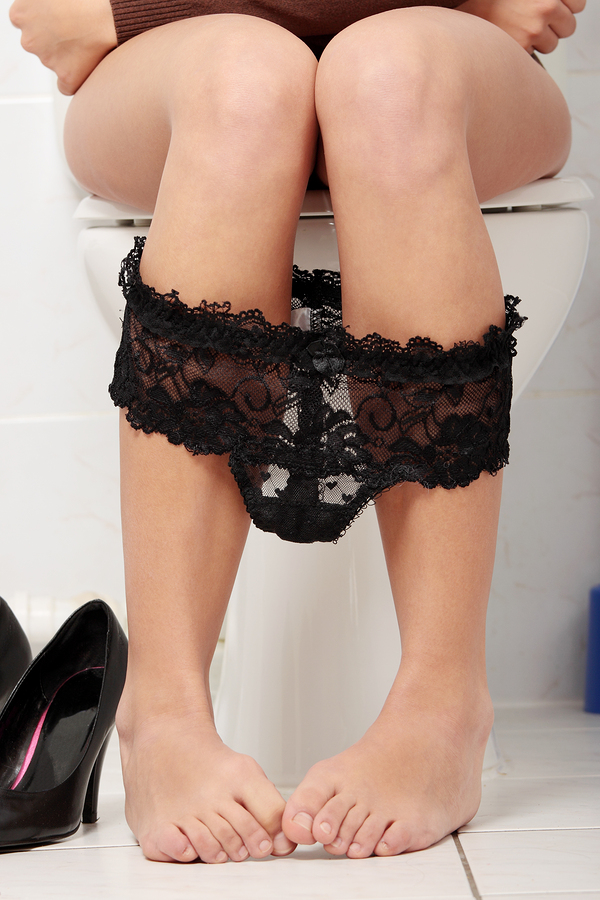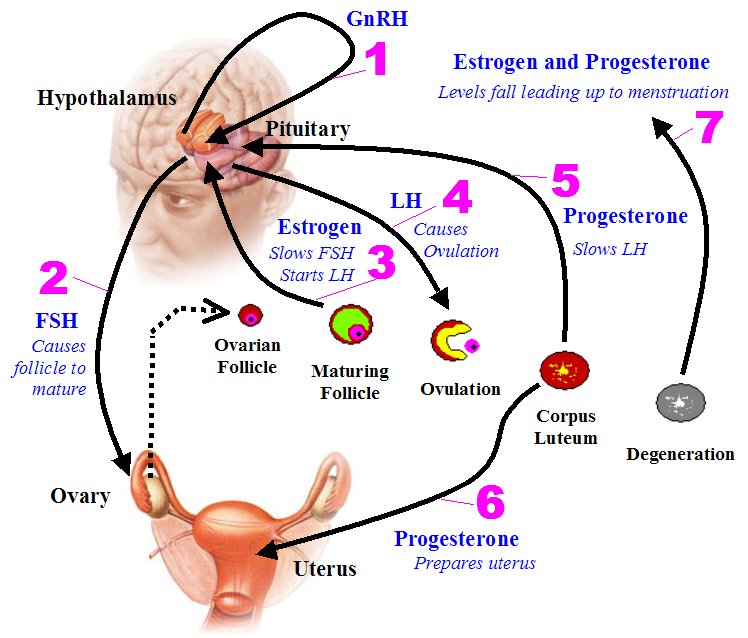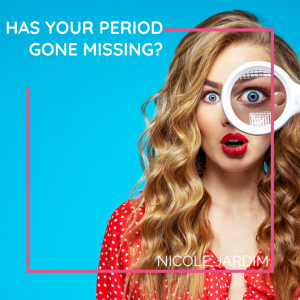Recently I’ve had a number of women come to see me about Functional Hypothalamic Amenorrhea (FHA).
What is Functional Hypothalamic Amenorrhea (FHA)?
FHA is a condition characterized by the absence of a menstrual period for three or more months in a woman of reproductive age, due to the breakdown in communication between the hypothalamus, pituitary and ovaries, also known as the hypothalamic-pituitary-ovarian axis.
This condition is absolutely something to be concerned about and thus I felt compelled to write about it this week.
As many of you know, my journey into the land of women’s hormonal health began when I was a teenager dealing with a rather finicky period. She would bless me with her presence every 2 or 3 months and she always came with a vengeance!
Not knowing that this was a sign of a hormonal imbalance, I just “dealt” with it. When I’d finally had enough of feeling like crap, I went to the gynecologist who promptly put me on the pill to “regulate” my hormones. Problem solved!
I was getting a period every month and it was lighter and totally pain free. Celebration! However, at the time I had no idea that the period I was getting each month wasn’t actually a real period! Ha, my poor young and naive 19 year-old self!
 Fast-forward a couple of years: I was still on the Pill but having all sorts of other issues – dry skin, hair and nails, joint pain, chronic yeast and urinary infections, you name it!
Fast-forward a couple of years: I was still on the Pill but having all sorts of other issues – dry skin, hair and nails, joint pain, chronic yeast and urinary infections, you name it!
Who would have guessed that the Pill could be causing all of this?
A girl can only handle so much and this girl had reached her Pill threshold, so I decided to ditch hormonal birth control altogether and take a more natural route, AKA no birth control. I DON’T RECOMMEND THIS if you’re having sex ladies. I was not at the time! 🙂
It took a couple of months to get my period back on track but when it came on it’s own I totally celebrated. By then I was doing weekly acupuncture, eating A LOT better and working out somewhat consistently, all of which played a big part in my post-Pill recovery.
Now that you know my experience prior to and after the pill, I’d like to elaborate a little bit on the causes behind Functional Hypothalamic Amenorrhea.
Causes of Functional Hypothalamic Amenorrhea
- The Pill! You knew that was coming right? So here’s the secret about hormonal birth control that your doctor is most likely not letting you in on. Most Pills are low-dose, meaning that they are giving you very low doses of whatever hormone they’re made of. You’ve been told that’s a good thing but it might not be. The problem is that most women require greater amounts of hormones (than their Pill is providing) in order to function at their optimal level. Joint pain? Caused by too little circulating estrogen. Low sex drive? Too little testosterone. See my blog post on that hot topic! I’m a huge proponent of non-hormonal birth control like the Fertility Awareness Method.If you need guidance around coming off hormonal birth control, I’ve created the ultimate step by step protocol to help you transition off hormonal birth control (the pill, patch, IUD, implant etc) and take back control of your hormones, your body and your life. I invite you to check out my Ditch Your Birth Control Protocol here.
- Disordered eating: When our bodies don’t get the necessary nutrients (namely Fat and Protein) to make hormones, then hormone levels drop. When estrogen and progesterone drop, our periods become erratic and eventually cease to exist. Hormones are made from cholesterol and many of us need sufficient dietary fat and cholesterol in order to make the right amount of hormones.
- Over-exercising: We’ve consistently been fed the message that we need to work out like mad women in order to be “healthy.” The problem with this is too much exercise can actually have the opposite effect and cause harm to our bodies. Here’s the reasoning: A little bit is okay but when we cross the physical and emotional stress threshold, we end up producing too much of the stress hormone cortisol. This hormone is good in small amounts to get us through daily life, but when we produce cortisol in large amounts over long periods of time, our bodies break down. Over-exercising causes too much cortisol and thus a breakdown in hormonal function.
So those are the 3 biggies! Today however, I want to focus on the Pill because most women who take hormonal birth control don’t realize it’s potentially detrimental effects. This is because they are never informed about the side effects to their menstrual health and ultimately to their fertility.
FHA caused by hormonal birth control
The chemicals in the pill essentially “switch off” your hypothalamus and it eventually stops communicating with your pituitary gland. Your pituitary then stops communicating with your ovaries.
FYI: Your hypothalamus’ job is to release Gonadotropin-Releasing Hormone (GnRH) to the pituitary gland. Your pituitary then sends Follicle Stimulating Hormone (FSH) and Luteinizing Hormone (LH) to your ovaries.
This in turn causes your ovaries to produce estrogen and progesterone. Estrogen and progesterone then send a signal back to the hypothalamus to slow down the release of its hormones. This is a tidy little feedback loop.

On the pill though, the hypothalamus basically says “well, someone else is doing my job so I don’t need to do it anymore.” It is essentially forced into early retirement.
In the book “A Couple’s Guide to Infertility,” the author Gary S. Berger confirms this phenomenon. He says, ” Long-term pill users may not menstruate or ovulate after they stop using the pill. This condition, known as post-pill amenorrhea, occurs because the pill disrupts the natural rhythmic flow of hormones from the hypothalamus to the pituitary to the ovaries. This may pose a special problem for older women who have been on the pill for many years because their ovaries may have become resistant to resuming ovulation.”
Now, I’m going to bet your doctor didn’t share that valuable nugget with you as she/he wrote your pill prescription. In addition to the disruption of your hormones, the pill actually changes the way your gut functions, which can then cause nutritional deficiencies and chronic yeast infections.
Scenario: You’re thinking of coming off the pill or you’ve come off the pill. You’re freaking out because you have no idea what will happen or you’re already experiencing some scary stuff. E.g. not getting your period back, raging acne, mood swings, etc.
How to come off hormonal birth control the right way
- Start by incorporating more protein into your diet. Remember, hormone manufacture requires protein. Make sure you’re consuming a source of protein at each meal and snack so that you keep your blood sugar balanced. I love eggs, wild-caught fish, organic beef and chicken, and lamb.
- Increase your consumption of healthy fats. Hormones also need fat! Pregnenolone, the “mother hormone” is synthesized from cholesterol. You should aim for a source of healthy fat in each meal. E.g. avocado, walnuts, wild-caught salmon, coconut oil, coconut butter, sardines, sesame seeds, chia seeds.
- Up your intake of B vitamins. Remember what I said above about the pill and nutritional deficiencies? Well, the B-complex of vitamins is hit the hardest. And guess what? We need B vitamins to have a functional menstrual cycle. Hello folate (B9)! Foods high in B vitamins are beans – the ‘B’ in beans stands for B vitamins 🙂 Also consider a B-complex supplement.
- Start mending your gut. Remember what I said about the pill changing the way your gut functions? Basically the pill has an antibiotic effect on your gut – yes, it can kill of the good bacteria, which makes you susceptible to all kinds of stomach problems. Start to incorporate probiotic-rich foods like sauerkraut and kim-chi to help rebuild your good gut flora.
- Slow down on the exercise. If you are doing strenuous exercise every day or even every other day, consider reducing the intensity. Start doing yoga, tai chi, qi gong, meditation. All of these practices reduce stress and ultimately cortisol.
- Get some help if you think you need it. If you have been dealing with the after-effects of the pill for more than 3 months then get some guidance. I recommend my Birth Control Protocol where I will show you exactly how to come off the pill and regain control of your hormones and your life.




9 thoughts on “Functional Hypothalamic Amenorrhea: Has Your Period Gone Missing?”
Pingback: The Best Time In Your Cycle to Test Progesterone - Nicole Jardim
Pingback: Does being vegan affect your period? - Nicole Jardim
I was put on birth control my junior year of high school to control my severe acne. It worked for about three years, then I went off of it during my sophomore year of college to try a natural route instead. My acne grew worse than it had ever been, and I haven’t had my period for nearly a year now, except for after the Prometrium (progesterone) pills the doctor gave me, which wasn’t a real period. Because I bled after taking those, that means my body is producing estrogen but no progesterone.
My hormone/thyroid blood tests all came back normal, as did my ultrasound. The doctors won’t admit that the birth control pills did this to me, despite the fact that my periods were normal before I took them. They want me to take more Prometrium or else go back on the birth control pills. They also think it might have something to do with my low body weight (5’3 and 105 pounds), although it’s not like I’m super skinny or anything… I’ve weighed less and had my period. Otherwise they have no answers for me. Neither did the two naturopathic doctors I went to, nor the endocrinologist.
I’ve tried the natural route: gluten/dairy/processed food free diet full of vegetables, fish, chicken, eggs, fruits, nuts/seeds, beans, coconut oil, olive oil, avocado, and gluten-free grains; I did the Candida cleanse diet for two weeks; I’m currently taking a Multi-vitamin including Vitamins C, D, E, Magnesium, Zinc, Copper, Calcium, and many others, along with additional supplements of Vitamin A, B-complex, Probiotics, Milk Thistle, Vitex, and EstroBlock (DIM); I tried Evening Primrose Oil and Burdock supplements, but discontinued them; I’ve just started using a natural progesterone cream made of Mexican Wild Yam; I drink plenty of water, get exercise, sleep well, and spend time outside; and I’ve eliminated all chemical-based toiletries my routine.
I’m running out of options. I don’t want to take the Prometrium again, but I may have to soon or else my endometrium will build up and increase my future risk of uterine cancer. I’m only 20. I should be having a period… infertility is a terrifying prospect. Please help!
Great post. I recently figured out that I have at least one autoimmune disease, possibly more, and taking the pill for 10 years was likely a contributing factor. Would be great to see a post about the possible risks for celiac, Hashimoto’s hypothyroidism and other autoimmune diseases, following long term pill use so that women know what to look for and what tests to ask for from their doctors. This is especially important when hoping to start a family, since untreated thyroid disease can cause infertility and miscarriage 🙁
Darcie, thank you so much for your comment! I have made a note about what you’d like to see me write about and will most definitely get on it. And I completely agree with you as well. Thyroid problems are indeed a major contributing factor to reproductive problems but many women are never told this. Big hug!
Oh my goodness this is describing me to a tee. Thankyou for sharing. I have had a history of ovarian cysts and endometriosis since I was 15. I am now 37. I stopped taking the pill in March of 2013 and have been going through hell! Periods late, not much bleeding, mid cycle pain, hear palpitations. I get a cold after every period am run down, crave sweet and salty foods. Low libido, insomnia, oh I could go on and on. I have found this so interesting and informative. I feel like I have hit a brick wall with my GP saying there is nothing wrong. Hormone levels are. “Normal” in their eyes. I have 5 children so I don’t have to worry about not ovulating for fertility reasons. But this cycle i am in is driving me insane. I stopped taking the pill as I developed hives, and everyone said it can’t be the pill, but within a week of stopping it (Yasmin) the hives went away. I just don’t know what to do or who to turn to. My body is screaming out for help I just don’t know how to help it…….
Hi Leigh! It doesn’t have to be hell…I can definitely help with what you’re dealing with. Send us an email support@nicolejardim.com and we’ll continue the conversation. Much love…
Such an interesting post!
I am 22 years old and came off the pill 7 months ago after 8 years of taking it and am experiencing FHA. I’ve been charting using FAM since coming off birth control and have not ovulated or has any kind of cycle or menstruation. I am slim/average weight, not skinny or very muscular, do some light exercise most days (yoga or walking), eat plenty of healthy fats and protein, and take a B complex and probiotics among other supplements, and am dairy and gluten free (I was incorporating all of these things well before coming off the pill). I’ve also done 4 months of weekly acupuncture and daily Chinese herbs from my TCM doctor but have not experienced any changes from that. My skin has also been breaking out quite a bit especially around my forehead and hairline. Blood tests come back in the normal range, although my liver function is low (I have never drunk heavily and do not drink alcohol or take any drugs or medications now). I do experience some moderate digestive issues but am able to alleviate that by basing my diet around fruits and veggies. I’m not particularly worried just yet about my amenorrhea (although, I think I’ll be worried if I haven’t started ovulating within one year of coming off the pill) but would love to hear any ideas people may have about other things I can do to support my body.
Hi Rita,
Thank you so much for sharing your story here with us here. I’d love to hear from more women like you on here too. I think your liver function adn digestive function are key here. If you want to schedule a consultation to chat with me just go ahead and email us at support@nicolejardim.com.
xoxo
Nicole